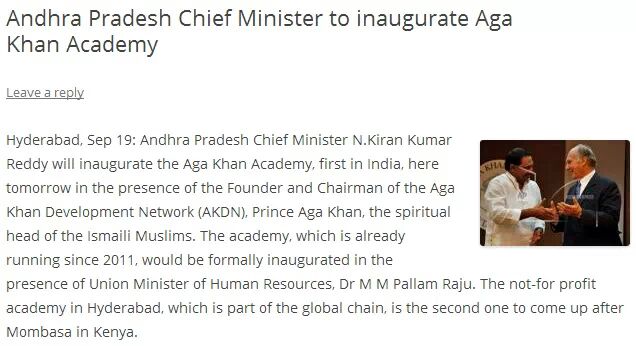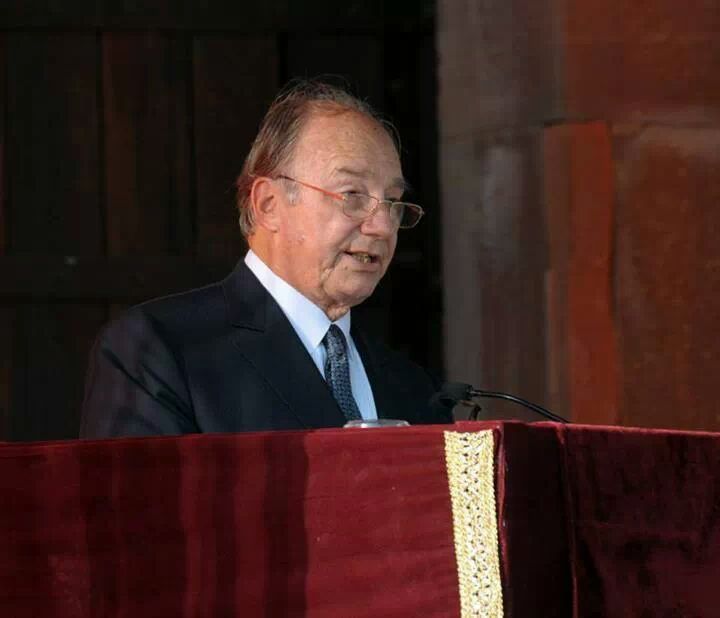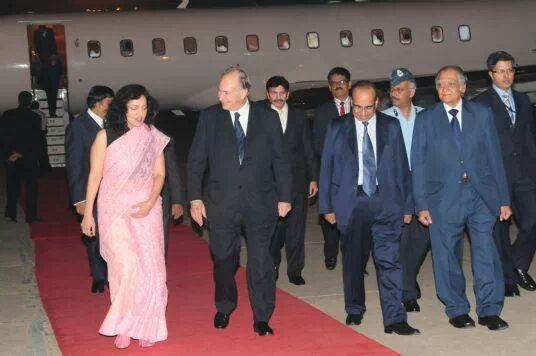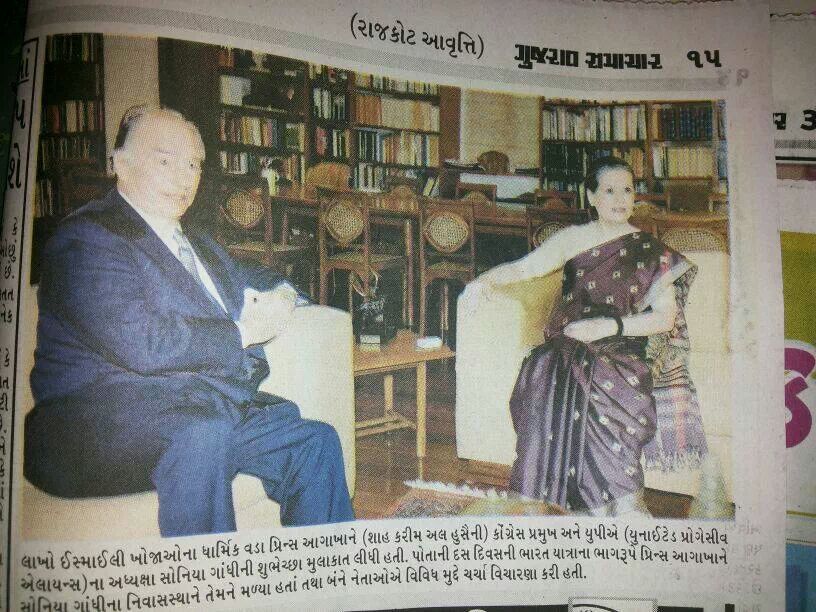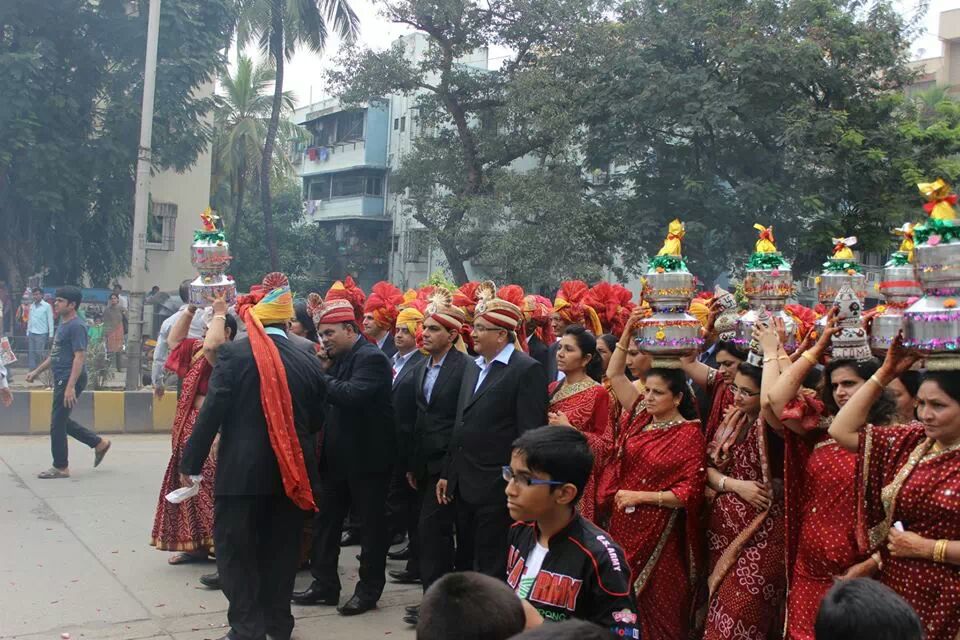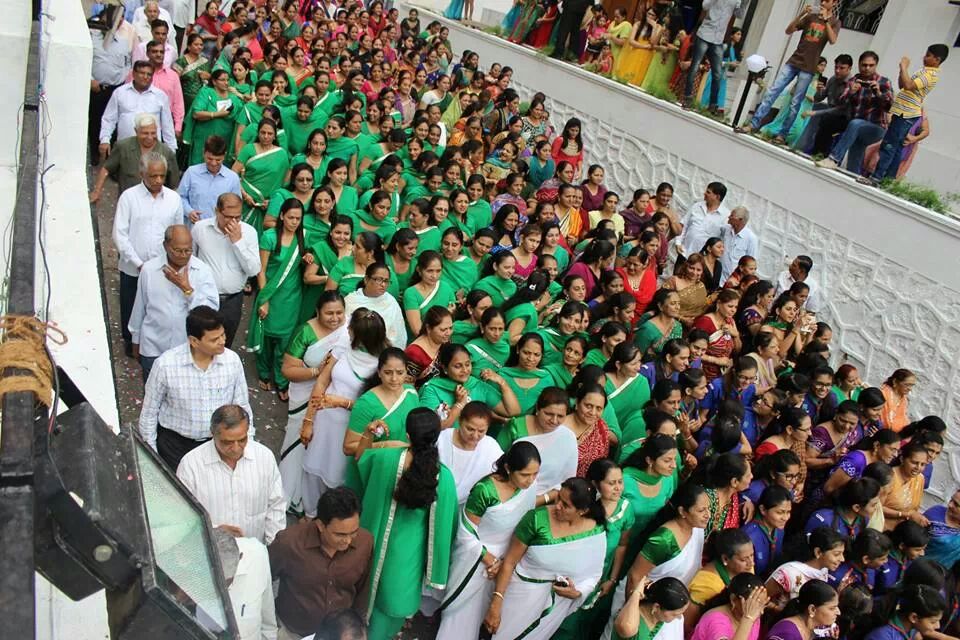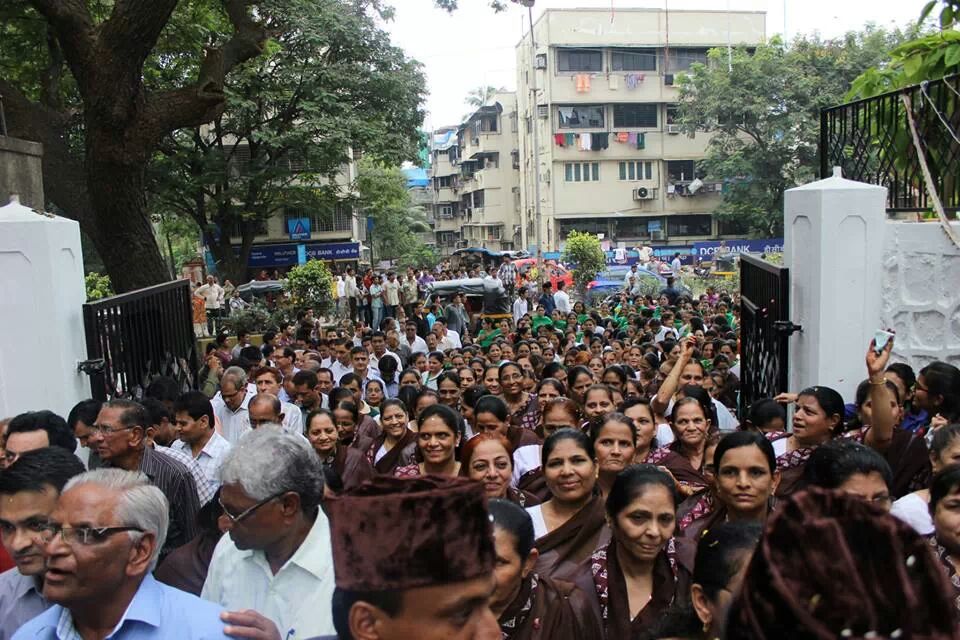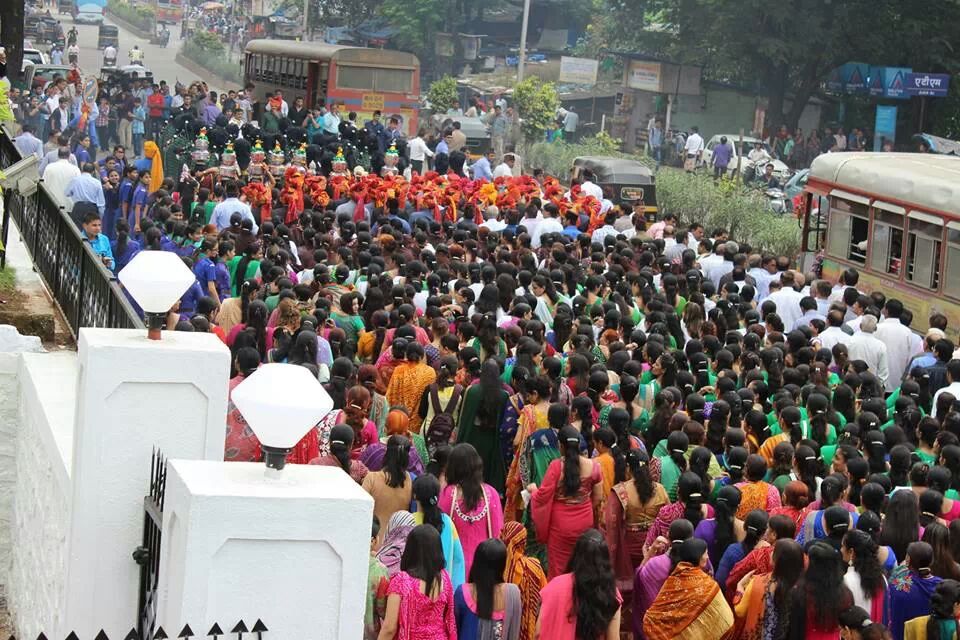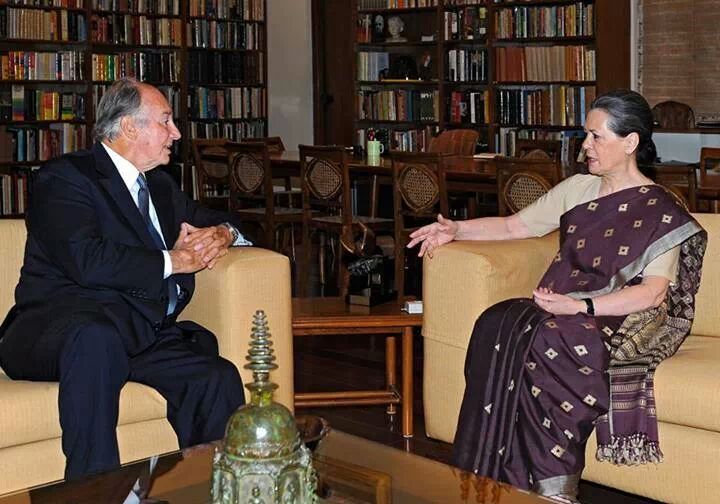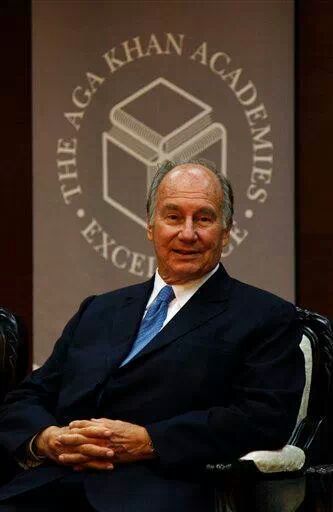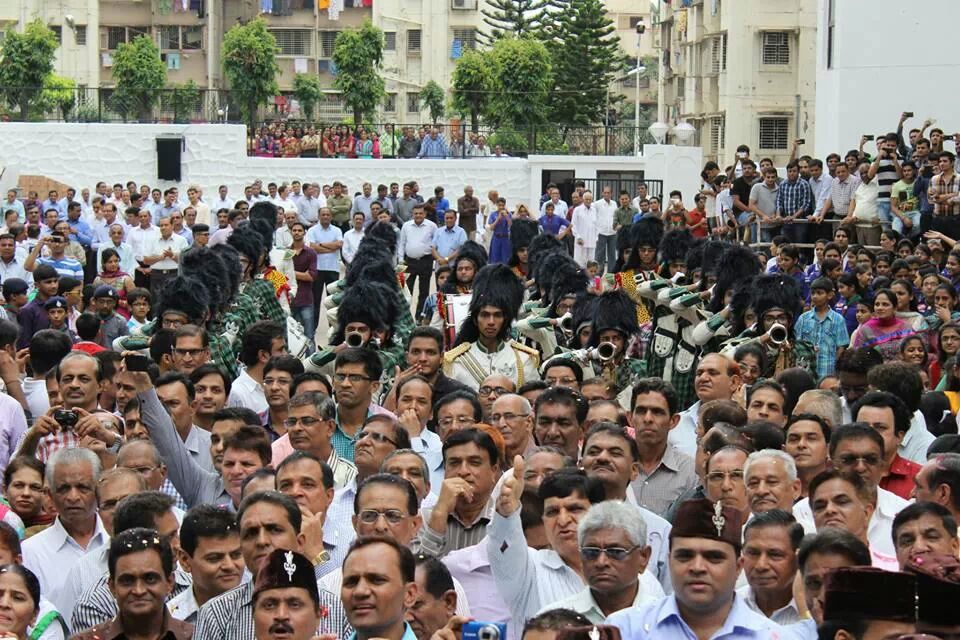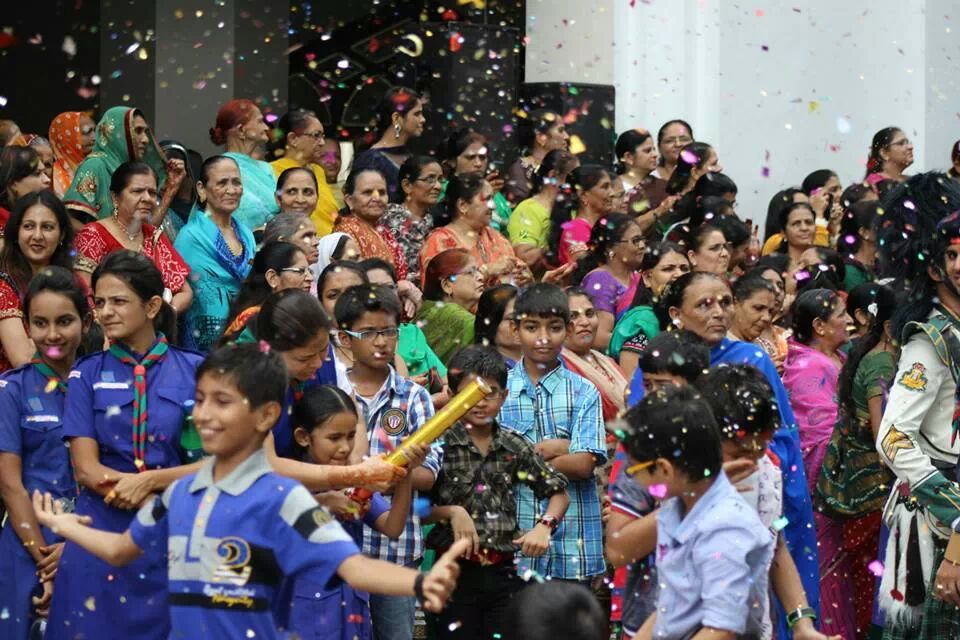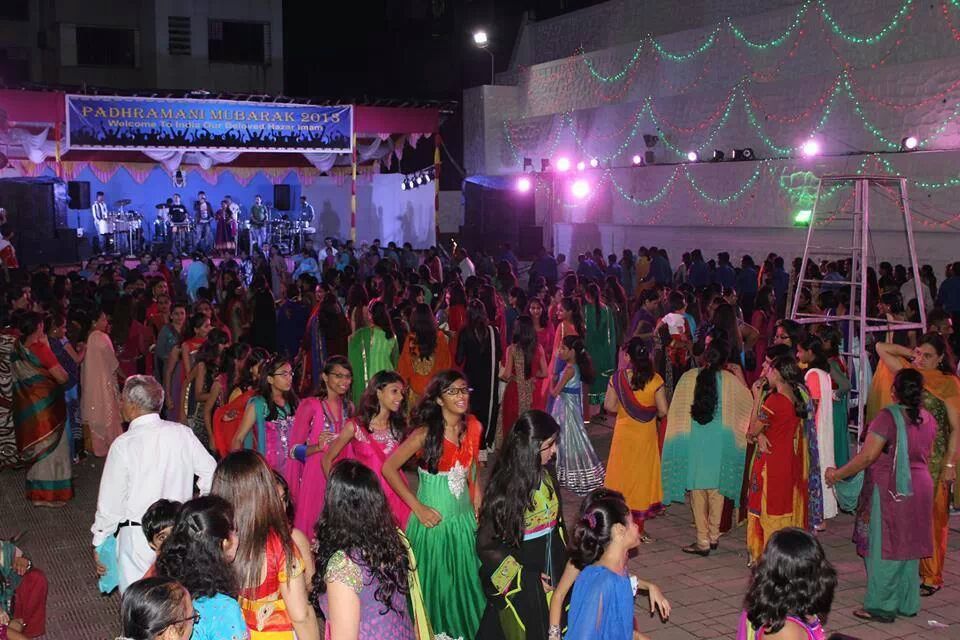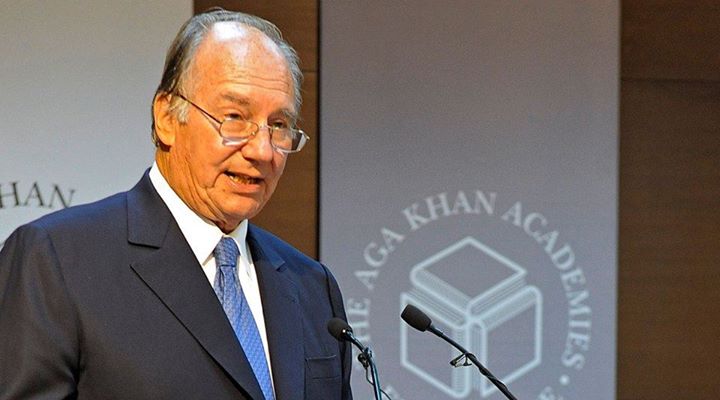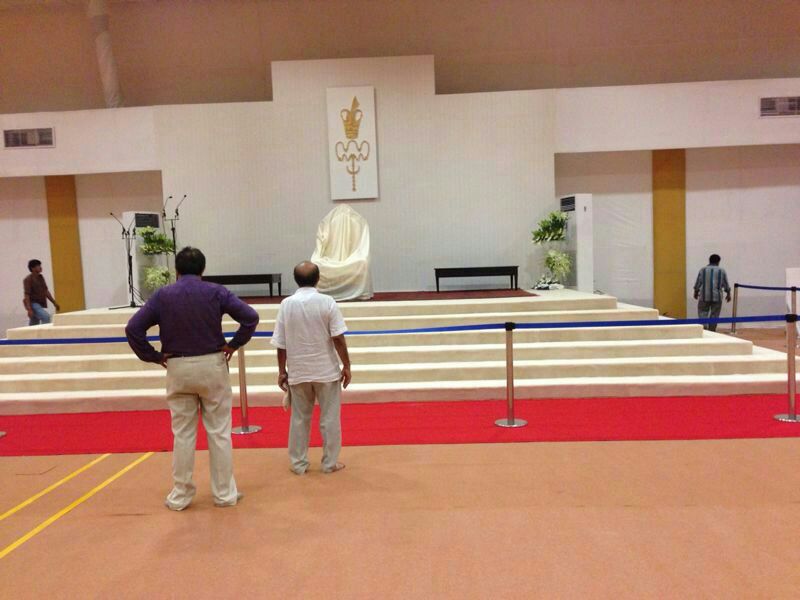MHI IN INDIA September 2013 Visit
Hyderabad - Sep 20 , 2013
Last Update at 19:26 IST
Aga Khan Academy at Hyderabad formally launched
The Aga Khan Academy, one of the educational centres of excellence planned around the world by Aga Kgan Development Network, was formally inaugurated here Friday.
The not-for profit academy which has come up on 100 acres of land donated by Andhra Pradesh government near the Rajiv Gandhi International Airport, was formally launched by Aga Khan, founder and Chairman of the Aga Khan Development Network (AKDN) in the presence of Chief Minister N. Kiran Kumar Reddy and union Human Resource Development Minister M.M. Pallam Raju.
The academy, which is running since 2011, is part of the global chain of such institutions planned by the AKDN and the second one to come up after Mombasa in Kenya. AKDN plans to set up 18 academies in 14 countries of Africa, Middle East, Central and South Asia.
The academy which follows International Baccalaureate (IB) curriculum gives admit students on merit basis and has a strong scholarship programme.
The Aga Khan noted the foundation stone for the academy was laid in 2005. "The aim of the academy is to educate talented young mind for global future," he said.
The academy follows residential secondary school system and creates multinational environment, he pointed out.
He said the AKDN had taken up restoration of heritage monuments like Humayun's Tomb in Delhi and Qutub Shahi Tombs in Hyderabad.
Pallam Raju said the country had made great strides in education after Right To Education (RTE) Act came into force. He said 230 million children were sent to schools during last three years and hoped that more would be enrolled in next two years.
"The aim of the Aga Khan Academy, Hyderabad, is to develop home-grown leaders with a strong sense of ethics and civic responsibility, who will contribute to India's future. By intentionally bringing a diverse group of students to study and live together, the Academy aims to help build understanding and respect across diverse sectors of society," said a statement by AKDN.
The academy incorporates a professional development centre for teacher training and curricular innovation. The centre through its outreach programme, also extends modern teaching and learning methods to government and other not-for-profit schools.
The agencies of the AKDN work to improve the welfare of people in the developing world, particularly in Asia and Africa.
The AKDN works in 30 countries around the world and employs approximately 80,000 people and its annual budget for non-profit development activities is approximately $600 million.
Last Update at 19:26 IST
Aga Khan Academy at Hyderabad formally launched
The Aga Khan Academy, one of the educational centres of excellence planned around the world by Aga Kgan Development Network, was formally inaugurated here Friday.
The not-for profit academy which has come up on 100 acres of land donated by Andhra Pradesh government near the Rajiv Gandhi International Airport, was formally launched by Aga Khan, founder and Chairman of the Aga Khan Development Network (AKDN) in the presence of Chief Minister N. Kiran Kumar Reddy and union Human Resource Development Minister M.M. Pallam Raju.
The academy, which is running since 2011, is part of the global chain of such institutions planned by the AKDN and the second one to come up after Mombasa in Kenya. AKDN plans to set up 18 academies in 14 countries of Africa, Middle East, Central and South Asia.
The academy which follows International Baccalaureate (IB) curriculum gives admit students on merit basis and has a strong scholarship programme.
The Aga Khan noted the foundation stone for the academy was laid in 2005. "The aim of the academy is to educate talented young mind for global future," he said.
The academy follows residential secondary school system and creates multinational environment, he pointed out.
He said the AKDN had taken up restoration of heritage monuments like Humayun's Tomb in Delhi and Qutub Shahi Tombs in Hyderabad.
Pallam Raju said the country had made great strides in education after Right To Education (RTE) Act came into force. He said 230 million children were sent to schools during last three years and hoped that more would be enrolled in next two years.
"The aim of the Aga Khan Academy, Hyderabad, is to develop home-grown leaders with a strong sense of ethics and civic responsibility, who will contribute to India's future. By intentionally bringing a diverse group of students to study and live together, the Academy aims to help build understanding and respect across diverse sectors of society," said a statement by AKDN.
The academy incorporates a professional development centre for teacher training and curricular innovation. The centre through its outreach programme, also extends modern teaching and learning methods to government and other not-for-profit schools.
The agencies of the AKDN work to improve the welfare of people in the developing world, particularly in Asia and Africa.
The AKDN works in 30 countries around the world and employs approximately 80,000 people and its annual budget for non-profit development activities is approximately $600 million.
Last edited by Admin on Sat Sep 21, 2013 2:45 pm, edited 1 time in total.
Times of India
Aga Khan Academy gets going in Hyderabad
TNN | Sep 21, 2013, 01.17 AM IST
timesofindia.indiatimes.com/city/hyderabad/Aga-Khan-Academy-gets-going-in-Hyderabad/articleshow/22825082.cms
HYDERABAD: The Aga Khan Academy, a state of the art international school belonging to the Aga Khan network of institutions was formally inaugurated in presence of spiritual leader Aga Khan in an elaborate ceremony on the academy premises in Shamshabad on Friday.
The inauguration ceremony took place exactly seven years after the foundation stone of the institute was laid in the 100 acres of land allotted by the state government. It was formally unveiled by Pallam Raju, Union minister for human resource development and chief minister N Kiran Kumar Reddy.
The Hyderabad academy is the second such campus to be launched internationally, following the one in Mombasa, Kenya. Other campuses are expected to come up in different parts of the world.
The academy which follows International Baccalaureate syllabus is currently running classes for junior, middle and senior school level students. The campus development started in 2010 and has currently reached its second phase where infrastructure to accommodate 750 students is already in place.
Emphasising on the cultural and academic pluralism practised by the school, Aga Khan said parents would recognise the immense benefits of having their children live together in a multinational environment, offering rigorous academic values.
He said that Hyderabad was chosen as the location for setting up the academy as the state government had provided a large site which suited their development plan.
"We plan to eventually set up 18 academies in 14 countries. The Hyderabad academy is the second to be inaugurated after the one in Kenya," said Aga Khan.
In the near future academies would come up in Dar Es Salam, Bishkek and Dhaka, as construction is underway at all the three locations, he said.
The academy administration plans to accommodate 750 students by 2017, of which about 50% would be boarders in the residential facility. Currently over 40% of the students on campus are part of the residential programme.
Chief minister Kiran Kumar Reddy said the state and especially Hyderabad will benefit from an institution like the Aga Khan Academy. "The city is already an educational hub and presence of the academy is only going to enrich it further," he said.
Aga Khan Academy gets going in Hyderabad
TNN | Sep 21, 2013, 01.17 AM IST
timesofindia.indiatimes.com/city/hyderabad/Aga-Khan-Academy-gets-going-in-Hyderabad/articleshow/22825082.cms
HYDERABAD: The Aga Khan Academy, a state of the art international school belonging to the Aga Khan network of institutions was formally inaugurated in presence of spiritual leader Aga Khan in an elaborate ceremony on the academy premises in Shamshabad on Friday.
The inauguration ceremony took place exactly seven years after the foundation stone of the institute was laid in the 100 acres of land allotted by the state government. It was formally unveiled by Pallam Raju, Union minister for human resource development and chief minister N Kiran Kumar Reddy.
The Hyderabad academy is the second such campus to be launched internationally, following the one in Mombasa, Kenya. Other campuses are expected to come up in different parts of the world.
The academy which follows International Baccalaureate syllabus is currently running classes for junior, middle and senior school level students. The campus development started in 2010 and has currently reached its second phase where infrastructure to accommodate 750 students is already in place.
Emphasising on the cultural and academic pluralism practised by the school, Aga Khan said parents would recognise the immense benefits of having their children live together in a multinational environment, offering rigorous academic values.
He said that Hyderabad was chosen as the location for setting up the academy as the state government had provided a large site which suited their development plan.
"We plan to eventually set up 18 academies in 14 countries. The Hyderabad academy is the second to be inaugurated after the one in Kenya," said Aga Khan.
In the near future academies would come up in Dar Es Salam, Bishkek and Dhaka, as construction is underway at all the three locations, he said.
The academy administration plans to accommodate 750 students by 2017, of which about 50% would be boarders in the residential facility. Currently over 40% of the students on campus are part of the residential programme.
Chief minister Kiran Kumar Reddy said the state and especially Hyderabad will benefit from an institution like the Aga Khan Academy. "The city is already an educational hub and presence of the academy is only going to enrich it further," he said.
indianexpress.com/news/aga-khan-academy-opens-in-hyderabad/1172124/
Aga Khan Academy opens in Hyderabad
Express News Service : Hyderabad, Sat Sep 21 2013, 02:18 hrs
The Aga Khan Academy Hyderabad, a new, not-for-profit school situated on a 100-acre campus, was officially inaugurated Friday by Andhra Pradesh Chief Minister N Kiran Kumar Reddy and Union HRD Minister M M Pallam Raju in the presence of Aga Khan, founder and chairman of the Aga Khan Development Network.
The academy, situated near the Rajiv Gandhi airport on land gifted by the state government, is the second in a global network of 18 schools being established across South and Central Asia, Africa and the Middle East. The first academy is located in Mombasa, Kenya, and the third in Maputo, Mozambique. Plans are underway for development in Bangladesh and Tanzania.
The academy provides talented girls and boys from all backgrounds with an all-round education of the highest international standards. Students are selected based on merit, irrespective of their ability to pay.
Aga Khan Academy opens in Hyderabad
Express News Service : Hyderabad, Sat Sep 21 2013, 02:18 hrs
The Aga Khan Academy Hyderabad, a new, not-for-profit school situated on a 100-acre campus, was officially inaugurated Friday by Andhra Pradesh Chief Minister N Kiran Kumar Reddy and Union HRD Minister M M Pallam Raju in the presence of Aga Khan, founder and chairman of the Aga Khan Development Network.
The academy, situated near the Rajiv Gandhi airport on land gifted by the state government, is the second in a global network of 18 schools being established across South and Central Asia, Africa and the Middle East. The first academy is located in Mombasa, Kenya, and the third in Maputo, Mozambique. Plans are underway for development in Bangladesh and Tanzania.
The academy provides talented girls and boys from all backgrounds with an all-round education of the highest international standards. Students are selected based on merit, irrespective of their ability to pay.
deccanchronicle.com/130921/news-current-affairs/article/1st-aga-khan-excellence-centre-india-begins
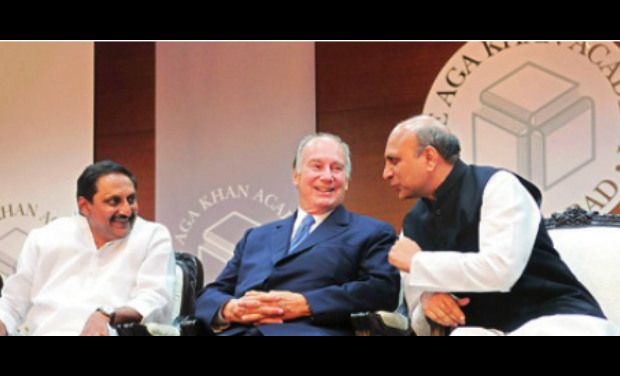
Saturday, Sep 21, 2013 | Last Update : 10:06 AM IST
1st Aga Khan excellence centre in India begins
Andhra Pradesh Chief Minister N. Kiran Kumar Reddy, spiritual leader Aga Khan and Union minister fro HRD M.M. Pallam Raju converse at the inauguration ceremony of the Aga Khan Academy in Hyderabad. —DC
Hyderabad: Seven years after the foundation stone was set, the Aga Khan Academy Hyderabad was inaugurated on Friday by Chief Minister Kiran Kumar Reddy and Union minister for human resource development Dr M.M. Pallam Raju.
Speaking at the inauguration ceremony, spiritual leader Aga Khan said that the Maheshwaram campus, which was the first centre of excellence started by the Aga Khan Foundation in India, would be part of 18 academies to be set up across 14 countries in the world. “The Hyderabad Academy is the second to be inaugurated; the next will be in Mombasa and Kenya.
Construction is now underway in Mozambique, Dares Saalam, Bishkek and Dhaka. The other planned sites range from Afghanistan and Tajikistan to Uganda, from Tanzania to the Democratic Republic of Congo, from Madagascar to Mali, from Syria to Pakistan and Portugal.
“When the programme is complete, our students will have the opportunity to speak and learn in Hindi, Urdu, Arabic, Dari, Kyrgyz, Bengali, Swahili, Russian, French, English and Portuguese,” said the spiritual leader.
The standard curriculum throughout the network will be International Baccalaureate and five optional themes, including comparative government and free market economies, will be added.
“We believe this developing academics network, as a single coherent institution, though geographically dispersed, will be highly coordinated. Our academics network will foster a lively sense of world awareness among all its students,” he said.
CM Kiran Kumar Reddy said that the academy was another feather in the cap of the state and praised the atmosphere that it would provide for overall development. Appreciating the academy’s equal focus on extra curricular activities, the CM stressed that it was very important to inculcate sportsman spirit among children so that they would learn to take both victory and failure in their stride.

Saturday, Sep 21, 2013 | Last Update : 10:06 AM IST
1st Aga Khan excellence centre in India begins
Andhra Pradesh Chief Minister N. Kiran Kumar Reddy, spiritual leader Aga Khan and Union minister fro HRD M.M. Pallam Raju converse at the inauguration ceremony of the Aga Khan Academy in Hyderabad. —DC
Hyderabad: Seven years after the foundation stone was set, the Aga Khan Academy Hyderabad was inaugurated on Friday by Chief Minister Kiran Kumar Reddy and Union minister for human resource development Dr M.M. Pallam Raju.
Speaking at the inauguration ceremony, spiritual leader Aga Khan said that the Maheshwaram campus, which was the first centre of excellence started by the Aga Khan Foundation in India, would be part of 18 academies to be set up across 14 countries in the world. “The Hyderabad Academy is the second to be inaugurated; the next will be in Mombasa and Kenya.
Construction is now underway in Mozambique, Dares Saalam, Bishkek and Dhaka. The other planned sites range from Afghanistan and Tajikistan to Uganda, from Tanzania to the Democratic Republic of Congo, from Madagascar to Mali, from Syria to Pakistan and Portugal.
“When the programme is complete, our students will have the opportunity to speak and learn in Hindi, Urdu, Arabic, Dari, Kyrgyz, Bengali, Swahili, Russian, French, English and Portuguese,” said the spiritual leader.
The standard curriculum throughout the network will be International Baccalaureate and five optional themes, including comparative government and free market economies, will be added.
“We believe this developing academics network, as a single coherent institution, though geographically dispersed, will be highly coordinated. Our academics network will foster a lively sense of world awareness among all its students,” he said.
CM Kiran Kumar Reddy said that the academy was another feather in the cap of the state and praised the atmosphere that it would provide for overall development. Appreciating the academy’s equal focus on extra curricular activities, the CM stressed that it was very important to inculcate sportsman spirit among children so that they would learn to take both victory and failure in their stride.
Official Visit of H.E. The Aga Khan to India (17-28 Sept, 2013)
MEAphotogallery
Now this link has 22 photos from the India visit
http://www.flickr.com/photos/meaindia/s ... 5583445445
MEAphotogallery
Now this link has 22 photos from the India visit
http://www.flickr.com/photos/meaindia/s ... 5583445445
Several videos of the 2013 India visit can be found on
http://www.youtube.com/results?search_q ... 11.youtube.
http://www.youtube.com/results?search_q ... 11.youtube.
A prince, a palace and a meal fit for a king
Mumbai Mirror | Sep 24, 2013, 01.38 AM IST
mumbaimirror.com/columns/mumbai-001/A-prince-a-palace-and-a-meal-fit-for-a-king/articleshow/22954172.cms
A prince, a palace and a meal fit for a king
Maharashtra Governor K Sankaranarayanan hosted spiritual leader and philanthropist Prince Aga Khan IV, who is on a 12-day official visit to India with his daughter Princess Zahra Aga Khan. Though Khan wouldn't have found a sight in Mumbai to rival Delhi's Humanyun's Tomb, which he inaugurated following its painstaking restoration, the good governor ensured the prince had a feast for his stomach. Invitees, including women and child welfare minister Varsha Gaikwad, industrialists Harsh Goenka and Ajay Piramal, High Court Chief Justice Mohit Shah, and MLA Amin Patel could not stop raving about the kheema dum biryani and the Kerala-style mutton that were centrepiece of the sumptuous seven-course dinner
Mumbai Mirror | Sep 24, 2013, 01.38 AM IST
mumbaimirror.com/columns/mumbai-001/A-prince-a-palace-and-a-meal-fit-for-a-king/articleshow/22954172.cms
A prince, a palace and a meal fit for a king
Maharashtra Governor K Sankaranarayanan hosted spiritual leader and philanthropist Prince Aga Khan IV, who is on a 12-day official visit to India with his daughter Princess Zahra Aga Khan. Though Khan wouldn't have found a sight in Mumbai to rival Delhi's Humanyun's Tomb, which he inaugurated following its painstaking restoration, the good governor ensured the prince had a feast for his stomach. Invitees, including women and child welfare minister Varsha Gaikwad, industrialists Harsh Goenka and Ajay Piramal, High Court Chief Justice Mohit Shah, and MLA Amin Patel could not stop raving about the kheema dum biryani and the Kerala-style mutton that were centrepiece of the sumptuous seven-course dinner
Shukranlillah wal humdulillah
Hazar Imam departed from the Taj Palace Hotel today at 10:15am for the airport. He was looking very happy and empyrean as He shifted closer to the untinted window and waved goodbye lovingly to His murids who were waiting by the roadside.
Interview of H.H. The Aga Khan by Ranjan Roy
timesofindia.indiatimes.com/home/stoi/all-that-matters/Civil-society-has-to-be-driven-by-competence-as-well-as-ethics-Aga-Khan/articleshow/23230809.cms
Civil society has to be driven by competence as well as ethics: Aga Khan - Ranjan Roy, TNN | Sep 29, 2013, 03.58 AM IST
The Aga Khan has often been counted among the world's richest men — his personal fortune is estimated by Forbes at about $800m — and he is known to keep the company of famous people. But rarely are his conversations about profits or bottom lines. Instead, the spiritual head of the Ismailiya sect, who bridges the divide between spiritual and material worlds with ease, likes to dwell on the changing nature of civil society, future leaders and the need for ethics in modernizing societies. In an interview with Ranjan Roy during his recent visit to Hyderabad to inaugurate Aga Khan Academy, part of his global network of not-for-profit schools, the 76-year-old spelt out his vision.
You want ethics to be an integral part of school curriculums?
When you are teaching ethics as a subject, you teach it as a continuum of all subjects. Whether you are teaching ethics in terms of history, science or communication, it becomes the premise on which you are trying to educate young men and women. Children get an understanding about the relationship between what they are learning and the ethics of what they are learning.
And you want free-market economics and comparative government to be taught to young children?
I am worried about countries which have inherited economic systems and the time it takes them to turn those around. Here I am talking about the former Soviet bloc countries where it has taken much, much more time — more than anybody had expected — for them to transform into pro-liberal productive economies. If you have a society which is regulated for 50 years where the individual is taught by the government about what is right and wrong, he can't be creative and think for himself.
You talk about ethics and ethical service in everyday life. What exactly is the latter?
Ethical service I would say is a vehicle that is available to support civil society. Civil society has to be driven first by competence. Secondly, it has to be driven by ethical behaviour because otherwise it would leave itself vulnerable to attacks. I think because of an increased dependence on technology we are moving more and more towards being individualistic rather than becoming integrated with society.
Do individuals increasingly lack an ethical compass?
Which is why most freedoms go past a certain set of limits. Freedom has been taken to a point where unethical behaviour has become acceptable. That is what I am apprehensive about and we see it many parts of the world. That kind of freedom enables the individual to behave in ways that are unhelpful to society, to its institutions. You can see it the banking world, you see it in the media world, and you can see it in social relations.
Apart from being ethical, what attributes should define an ideal high school graduate from your global school network?
We could hopefully create young children who could go to any national or foreign university. They would be at a minimum trilingual and would have had life experience in at least two countries if not more. We will be talking to faculty members whose interest could be stimulated by moving from one country to another or there could be fellowships.
How will you continue to widen your academies and schools?
I have turned the whole thing around and I have dropped it in the lap of our financial people. I told them, look guys you better start thinking about the future of society, you can't go on indefinitely looking at profits and giving yourself dividends. We are looking to see whether we can create a financial vehicle which is located somewhere between what I would call social philanthropy and capitalist financial institutions. If it does work, it will support health-care, education, etc.
timesofindia.indiatimes.com/home/stoi/all-that-matters/Civil-society-has-to-be-driven-by-competence-as-well-as-ethics-Aga-Khan/articleshow/23230809.cms
Civil society has to be driven by competence as well as ethics: Aga Khan - Ranjan Roy, TNN | Sep 29, 2013, 03.58 AM IST
The Aga Khan has often been counted among the world's richest men — his personal fortune is estimated by Forbes at about $800m — and he is known to keep the company of famous people. But rarely are his conversations about profits or bottom lines. Instead, the spiritual head of the Ismailiya sect, who bridges the divide between spiritual and material worlds with ease, likes to dwell on the changing nature of civil society, future leaders and the need for ethics in modernizing societies. In an interview with Ranjan Roy during his recent visit to Hyderabad to inaugurate Aga Khan Academy, part of his global network of not-for-profit schools, the 76-year-old spelt out his vision.
You want ethics to be an integral part of school curriculums?
When you are teaching ethics as a subject, you teach it as a continuum of all subjects. Whether you are teaching ethics in terms of history, science or communication, it becomes the premise on which you are trying to educate young men and women. Children get an understanding about the relationship between what they are learning and the ethics of what they are learning.
And you want free-market economics and comparative government to be taught to young children?
I am worried about countries which have inherited economic systems and the time it takes them to turn those around. Here I am talking about the former Soviet bloc countries where it has taken much, much more time — more than anybody had expected — for them to transform into pro-liberal productive economies. If you have a society which is regulated for 50 years where the individual is taught by the government about what is right and wrong, he can't be creative and think for himself.
You talk about ethics and ethical service in everyday life. What exactly is the latter?
Ethical service I would say is a vehicle that is available to support civil society. Civil society has to be driven first by competence. Secondly, it has to be driven by ethical behaviour because otherwise it would leave itself vulnerable to attacks. I think because of an increased dependence on technology we are moving more and more towards being individualistic rather than becoming integrated with society.
Do individuals increasingly lack an ethical compass?
Which is why most freedoms go past a certain set of limits. Freedom has been taken to a point where unethical behaviour has become acceptable. That is what I am apprehensive about and we see it many parts of the world. That kind of freedom enables the individual to behave in ways that are unhelpful to society, to its institutions. You can see it the banking world, you see it in the media world, and you can see it in social relations.
Apart from being ethical, what attributes should define an ideal high school graduate from your global school network?
We could hopefully create young children who could go to any national or foreign university. They would be at a minimum trilingual and would have had life experience in at least two countries if not more. We will be talking to faculty members whose interest could be stimulated by moving from one country to another or there could be fellowships.
How will you continue to widen your academies and schools?
I have turned the whole thing around and I have dropped it in the lap of our financial people. I told them, look guys you better start thinking about the future of society, you can't go on indefinitely looking at profits and giving yourself dividends. We are looking to see whether we can create a financial vehicle which is located somewhere between what I would call social philanthropy and capitalist financial institutions. If it does work, it will support health-care, education, etc.
http://www.jagranjosh.com/current-affai ... 80608773-1
Published on: 01-OCT-2013
Aga Khan, a Swiss-Born Philanthropist and Muslim Spiritual Leader Visited India
Aga Khan, a Swiss-Born Philanthropist and Muslim Spiritual Leader visited India from 17 to 29 September 2013. During the visit in New Delhi, Aga Khan met President of India Pranab Mukharji, Vice-President of India Hamid Ansari and Prime Minister of India Manmohan Singh.
Highlights of the Visit
• During the official visit, Aga Khan the unveiled restored Humayun’s Tomb in New Delhi on 18 September 2013. The task of restoration was done by the Aga Khan Trust for Culture, in partnership with the Archaeological Survey of India, and with the support of the Sir Dorabji Tata Trust. The restoration work took place on the public private partnership (PPP) model and it is first of its kind on the India’s heritage site. The project was funded primarily by the Aga Khan Trust.
• During the visit, Aga Khan Academy Hyderabad, which is the new non-profit school on 100 acre campus, was inaugurated on 20 September 2013 by the Chief Minister of Andhra Pradesh N Kiran Kumar Reddy in the presence of Aga Khan, the founder and chairman of Aga Khan Development Network.
• He was also visited the cities of Hyderabad and Mumbai, where Aga Khan Development Network (AKDN) is involved in various flagship development projects.
About Aga Khan
Aga Khan, a Swiss-Born Philanthropist and Muslim Spiritual Leader was born on 13 December 1936 in Geneva.
He graduated from Harvard University in 1959 with a BA Honors Degree in Islamic history.
Aga Khan, the Chairman of the Aga Khan Development Network, became Imam (spiritual leader) of the Shia Imami Ismaili Muslims on 11July 1957 at the age of 20, succeeding his grandfather, Sir Sultan Mahomed Shah Aga Khan.
Who: Aga Khan
Where: India
What: Aga Khan Visit to India
When: 17 to 29 September 2013
Published on: 01-OCT-2013
Aga Khan, a Swiss-Born Philanthropist and Muslim Spiritual Leader Visited India
Aga Khan, a Swiss-Born Philanthropist and Muslim Spiritual Leader visited India from 17 to 29 September 2013. During the visit in New Delhi, Aga Khan met President of India Pranab Mukharji, Vice-President of India Hamid Ansari and Prime Minister of India Manmohan Singh.
Highlights of the Visit
• During the official visit, Aga Khan the unveiled restored Humayun’s Tomb in New Delhi on 18 September 2013. The task of restoration was done by the Aga Khan Trust for Culture, in partnership with the Archaeological Survey of India, and with the support of the Sir Dorabji Tata Trust. The restoration work took place on the public private partnership (PPP) model and it is first of its kind on the India’s heritage site. The project was funded primarily by the Aga Khan Trust.
• During the visit, Aga Khan Academy Hyderabad, which is the new non-profit school on 100 acre campus, was inaugurated on 20 September 2013 by the Chief Minister of Andhra Pradesh N Kiran Kumar Reddy in the presence of Aga Khan, the founder and chairman of Aga Khan Development Network.
• He was also visited the cities of Hyderabad and Mumbai, where Aga Khan Development Network (AKDN) is involved in various flagship development projects.
About Aga Khan
Aga Khan, a Swiss-Born Philanthropist and Muslim Spiritual Leader was born on 13 December 1936 in Geneva.
He graduated from Harvard University in 1959 with a BA Honors Degree in Islamic history.
Aga Khan, the Chairman of the Aga Khan Development Network, became Imam (spiritual leader) of the Shia Imami Ismaili Muslims on 11July 1957 at the age of 20, succeeding his grandfather, Sir Sultan Mahomed Shah Aga Khan.
Who: Aga Khan
Where: India
What: Aga Khan Visit to India
When: 17 to 29 September 2013
articles.timesofindia.indiatimes.com/2013-10-01/edit-page/42573812_1_ethics-class-ethics-101-aga-khan
Spiritual leader the Aga Khan feels ethics should be part of school curriculum
Oct 1, 2013, 12.00AM IST
TIMES VIEW
Ethics can be taught innovatively
The Aga Khan's suggestion about ethics being taught alongside other subjects makes great sense. Look around - you'll see ethics crumbling in every sphere, from politics to police, social service to sports, medicine to marriage. Part of the strife that ensues is driven by base tendencies like violence and greed - but part is also driven by confusion about ethical versus unethical behaviour. Such confusion clouds our judgment of several vital things, from the logic of laws to personal promises, why we shouldn't zip past a red traffic light, to why we should help someone in need.
Such confusion can be addressed by teaching ethics in schools, impacting fresh, honest minds. Childhood is the ideal time for any education. Many parents make efforts to find the best math, piano or swimming teacher for their child. Alongside, it makes sense to want a good ethical education too. Without this, you won't have a society where an individual's gifts aren't compromised. Critics fearing dull lessons, do note - an ethical education needn't be a formulaic affair. Instead, this could involve the best teachers with the most imaginative minds, teaching from the finest world traditions and modern challenges, getting students to discuss crossroads of choice.
This prospect holds even greater relevance for India which has a famously rich literature on moral ways. Thus far, perhaps overwhelmed by our own canonical weight, students have been kept away from such learning. But this hasn't done our society any good. It's time we begin an ethical education at the dawn, not dusk, of our lives. For those concerned about an element of compulsion, their fears are misplaced, for an ethics class is the only one that can proudly proclaim - it's your choice.
COUNTER VIEW
Reading and math come first
Rudrani Jalan
Ethics means different things to different people. To some it has to do with feelings about what's right or wrong. To others it's about religious beliefs. To yet others it's about obeying laws. We could agree that it's about values and standards of behaviour considered acceptable by a society. But even this agreement wouldn't get us closer to a commonly acceptable ethics curriculum in a diverse, contested nation like India. The question is, do our children's already crowded curricula really need the addition of yet another class, an ethics class?
Fans keep quoting the father of ethics Socrates, who said that the unexamined life isn't worth living. But they would do well to remember that what this 5th century BC philosopher was really interested in teaching people was how to think. Before shoving yet another thick textbook titled Ethics 101 into bulky schoolbags, consider that our children are already negotiating the subject across all their classes. Surely the non-violence movement is being discussed in discursive terms in the history lesson. Surely the mathematics classroom is grappling with logic, untangling assumptions and induction. Likely, children are also being taught the desirability of sharing and the undesirability of bullying. Ditto for respecting other people's point of view vs lying, stealing, cheating. Wasting the Indian education system's stretched resources on redundant exercises would be unconscionable.
What if children aren't being taught to think creatively, critically? This isn't unlikely as despite increased school enrolments, learning outcomes continue to be very worrying in India. Then too, a school system can only ever be as good as its teachers. We need to deepen the pool of talented teachers, who deliver improved outcomes. And the best teachers teach ethics by just being. Bertolt Brecht said, grub first then ethics. I say, reading and arithmetic first.
Spiritual leader the Aga Khan feels ethics should be part of school curriculum
Oct 1, 2013, 12.00AM IST
TIMES VIEW
Ethics can be taught innovatively
The Aga Khan's suggestion about ethics being taught alongside other subjects makes great sense. Look around - you'll see ethics crumbling in every sphere, from politics to police, social service to sports, medicine to marriage. Part of the strife that ensues is driven by base tendencies like violence and greed - but part is also driven by confusion about ethical versus unethical behaviour. Such confusion clouds our judgment of several vital things, from the logic of laws to personal promises, why we shouldn't zip past a red traffic light, to why we should help someone in need.
Such confusion can be addressed by teaching ethics in schools, impacting fresh, honest minds. Childhood is the ideal time for any education. Many parents make efforts to find the best math, piano or swimming teacher for their child. Alongside, it makes sense to want a good ethical education too. Without this, you won't have a society where an individual's gifts aren't compromised. Critics fearing dull lessons, do note - an ethical education needn't be a formulaic affair. Instead, this could involve the best teachers with the most imaginative minds, teaching from the finest world traditions and modern challenges, getting students to discuss crossroads of choice.
This prospect holds even greater relevance for India which has a famously rich literature on moral ways. Thus far, perhaps overwhelmed by our own canonical weight, students have been kept away from such learning. But this hasn't done our society any good. It's time we begin an ethical education at the dawn, not dusk, of our lives. For those concerned about an element of compulsion, their fears are misplaced, for an ethics class is the only one that can proudly proclaim - it's your choice.
COUNTER VIEW
Reading and math come first
Rudrani Jalan
Ethics means different things to different people. To some it has to do with feelings about what's right or wrong. To others it's about religious beliefs. To yet others it's about obeying laws. We could agree that it's about values and standards of behaviour considered acceptable by a society. But even this agreement wouldn't get us closer to a commonly acceptable ethics curriculum in a diverse, contested nation like India. The question is, do our children's already crowded curricula really need the addition of yet another class, an ethics class?
Fans keep quoting the father of ethics Socrates, who said that the unexamined life isn't worth living. But they would do well to remember that what this 5th century BC philosopher was really interested in teaching people was how to think. Before shoving yet another thick textbook titled Ethics 101 into bulky schoolbags, consider that our children are already negotiating the subject across all their classes. Surely the non-violence movement is being discussed in discursive terms in the history lesson. Surely the mathematics classroom is grappling with logic, untangling assumptions and induction. Likely, children are also being taught the desirability of sharing and the undesirability of bullying. Ditto for respecting other people's point of view vs lying, stealing, cheating. Wasting the Indian education system's stretched resources on redundant exercises would be unconscionable.
What if children aren't being taught to think creatively, critically? This isn't unlikely as despite increased school enrolments, learning outcomes continue to be very worrying in India. Then too, a school system can only ever be as good as its teachers. We need to deepen the pool of talented teachers, who deliver improved outcomes. And the best teachers teach ethics by just being. Bertolt Brecht said, grub first then ethics. I say, reading and arithmetic first.
Walk the Talk with His Highness Aga Khan
This week we travel to outskirts of Hyderabad to interview His Highness The Aga Khan, spiritual leader of the Ismaili Community and Founder and Chairman of The Aga Khan Development Network. He speaks about how he bridges the east and the west and brings different communities together. He says that the modern world suffers from ignorance rather than civilization. He also speaks about how his academy is devoid of caste, religion and sect. And about how his life changed after the World Trade Centre plane crash in 2001. He also talks about the turmoil in Egypt, Syria and Pakistan and how he disagrees that the angriest Muslims are in Pakistan and sends a message to its leaders and the Shias and Sunnis.
www.ismaili.net/html/modules.php?op=mod ... 2673#42673
www.ismaili.net/html/modules.php?op=mod ... 2673#42673
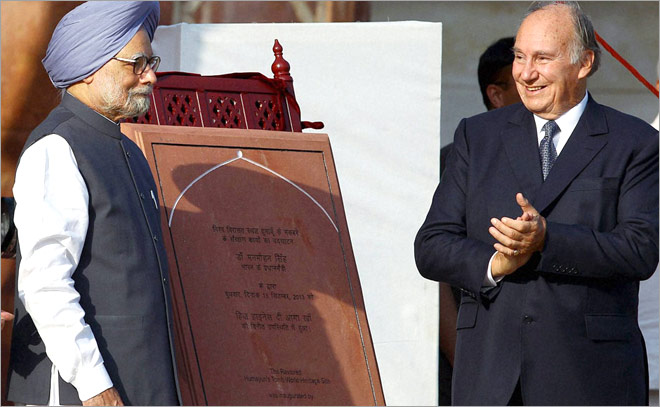
Prime Minister Manmohan Singh unveils a plaque to inaugurate the restored work at Humayun'€™s Tomb as the Prince Karim Aga Khan applauds at a ceremony in New Delhi.
indiatoday.intoday.in/story/aga-khan-what-keeps-him-on-course-with-reviving-cultural-heritage/1/314461.html
Aga Khan: What keeps him on course with reviving cultural heritage in developing world
Sandeep Unnithan New Delhi, October 13, 2013 | UPDATED 20:29 IST
The Fourth Aga Khan, the spiritual head of the Ismaili community, also heads a unique Aga Khan Trust for Culture. The trust which revives monuments and cultural spaces to benefit local communities in Asia and Africa. The Aga Khan was in Delhi recently at the completion of the Humayun's Tomb project. In a rare interview, he spoke to India Today's Deputy Editor Sandeep Unnithan on the completion of this very unique project in the heart of Delhi, what keeps him on course with reviving the cultural heritage in the developing world.
Q: The journey that started with a request by Prime Minister Manmohan Singh at the Humayun Tomb in 2004 has ended here nearly a decade later. Most of the principal characters were back on the same stage. What are your feelings about this project today?
Aga Khan: The development exercise whether in culture or industry or agriculture projects have a timeframe which is between ten and twenty years. These projects take time and they take time before they produce results. The fact that you are talking to a consistent team on the other side is very very important. Particularly when you are doing something which hasn't been done before. If you are doing something which has been done before, you don't need to go through a consultation process but this form of cultural restoration exercise (the renovation of the Humayun's tomb), hadn't been done in this sort of a way in India.
So in my case, it was not only a privilege to have a continuity but it was a very creative dialogue and I mention this on purpose because it was the prime minister who in a speech in AKTC forum talked about public-private partnerships - we haven't heard that before on cultural activities we've heard it before on economic activities, but not on cultural activities.
Q: Was there something on your mind at that moment when he said he'd like you to take that project up on a PPP mode? Was there something in your mind that you wanted to do?
AK: Very much so. We really grateful for this concept and I'll tell you why without going into the details. We have done one small project in another country where we had not negotiated, where we did not agree on post-construction management. We returned the asset to a different management team...we were looking at the post-construction team…we were looking at an environment for the post-construction management of these assets. In fact this is immensely important for the project in Cairo, which is fairly old. If you took a survey of the people who use that project, you will find the one thing that they appreciate is not only the project but the quality of its maintenance.
Q: Is that the most satisfying aspect of this project? The post phase?
AK: Oh no. first of all the possibility of this project to go out of its original scale is very exciting because it has gone from 36 acres to nearly 100 acres. The scale of the project has multiplied by three, so that alone is a very exciting opportunity.
I think the second thing that we learnt on this project, every project we deal with some kind of local environment here we were dealing with a faith community and we needed to have the confidence of the faith community in order for the programme to be a success. Very often the local community have a tradition and a knowledge and experience of the asset and they are sensitive and in this case, Ratish (Ratish Nanda, the AKTC's project director in India) were able to get by - I don't like the word 'by' but whatever you would want to call it.
Ratish Nanda: There is a lot of buy-in your highness, both the government and the local community, hence we had sort of, as someone said, 'got the camel's nose under the tent'.
Aga Khan: There are two aspects: the first of it is the condition of this buy-in because ultimately these projects go back to the people in which the local community is responsible, so their attachment to this project in which they will see their interest is very important.
Q: Do you see this as an inspiration for other projects across the country. You are taking up another project in Hyderabad.
AK: Yes. Absolutely. We are taking up other projects in Hyderabad, more projects were mentioned to us today...discussions are on with various ministries. Essentially what we are talking about is converting dormant assets into productive assets for a local economy or a national economy.
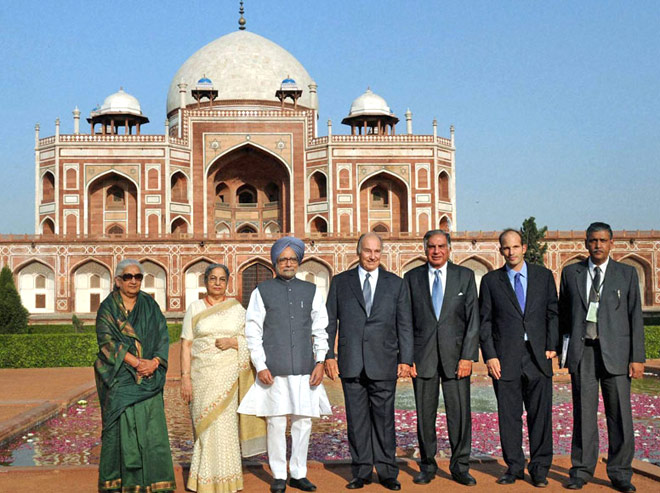
PM Manmohan Singh, his wife Gursharan Kaur, Prince Aga Karim Khan, Chandresh Katoch and Ratan Tata in the unveiling of the renovated Humayun’s Tomb.
Q: How is the project that you are taking up in Hyderabad, the renovation of the Qutub Shahi tombs, Is it similar to this, is it different from the Humayun's tomb?
AK: I don't know whether you want to describe this Ratish.
Ratish Nanda: The project, your highness, is very much derived from a combination of Humayun's tomb and Sunder Nursery. It's the scale of the area we are working on is very similar but the number of heritage buildings which are contained within are significantly larger.
AK: And some of them of them are significantly bigger than what we find in Sunder Nursery. Another aspect is the typology of the buildings that completes the portfolio of Mughal architecture.
Q: Could you explain the concept of the baseline study which you embark on before taking on a project?
AK: The notion of the baseline study is very important in these studies. What we've been trying to do is to convince municipalities, communities that this sort of initiatives are economically very very solid in what they do in terms of people and in order to demonstrate that, you have to have a baseline project which tells you what is the quality of life before, what is the quality of life when you're through…the baseline study has become one of the tools we use to demonstrate to municipalities, to direct donors to govt agencies that this is a restoration process, we are simply not restoring a structure.
Q: What factors do you look into before you pick up a project?
AK: A baseline study would tell us how many people we would hope to impact, in what time, in what ways, so, it will give us, what I would call it, targets in quality of life, numbers of people. It would also indicate to us, what are the fragilities of those communities. Very often, there are very real social problems in those communities and that's the first thing. The second thing is the degree of buy-in they can achieve, because none of the projects in this particular field could survive. It really is a condition. So the local community's attitude is important. The third thing would be our own attitude, do we have the resources? do we have the knowledge? We have multiple aspects in this project, healthcare, education, access to credit, all of this. And I would go so far as to say that probably these projects would not be able to go where they do go if they were single initiatives. They have to be multiple and that, I think is the conditionality.
The fourth one is what I would call it the legislative because these sites are very often complex. There are multiple owners, there are people who have claims, there are trusts, we have to deal with so, there are other ones from the Aga Khan Trusts' point of view, it would be, 'what is the dimension of this activity to other things we are doing?' and this does tend to consume considerable resources.
One of the threats of this program is what they call gentrification. That is, you change the nature of the environment, you bring new value to the assets, people tend to monetize those assets, so they tend to sell, to rent, move to other areas and very often, they don't manage their added wealth very well this process of gentrification is a well-known problem and in fact in Cairo, we had to negotiate to ensure that didn't happen.
Q: India is today richer than it has been in the past but not too many of its wealthy enterpreneurs give back to society. How do you view philanthropy? You had the choice not to do what you are doing.
AK: Its difficult for me to put myself in the position of an Indian entrepreneur. I wouldn't be able to comment on that. I think what drives our network is to enable people to manage their destinies. Once they manage their destinies, you will see, generally speaking, a take-off situation. Its when they cannot manage their destinies and cannot achieve a level of economic independence that they are indebted in a terrible way or are subject to climate change because they are in agriculture or because they are high-risk and they have an earthquak - these are situations which we try to assist. We are not interested in philanthropy in a western terminology as I would call it, because philanthropy or what they call it, charity, is not our notion of development. Our notion of development is to assist people to go from a notion of an unsatisfactory position of development to an autonomous position. That to us, is what is important. Once they are autonomous, our role is finished. They can manage their destiny.
Q: Do you have a favorite story about one of your experiences?
AK: I've been in this for so many years, it would be difficult to pull out individual situations. Generally speaking we have seen a process of change, the inputs that cause change. That is what we look at all time, what are the forces that cause individual societies to change. I think the other thing in the cultural domain is quite exciting, is that these cultural assets are sometimes in rural areas and if we can make those assets productive even if they are much smaller, it helps diversify the local economy. A farmer who has four children will have one child - you start seeing a process of stabilization of family. That for us, is quite exciting.
Q: When you recently spoke at the Aga Khan award for architecture you mentioned the power of architecture to transform lives. Is this what you referred to?
AK: One of the things we have seen over the years is of families in rural areas and urban areas starting to have disposable surplus. And you ask yourself, how do they use that disposable surplus? The first thing they will do is improve their habitation. They will put a metal roof over their house, instead of putting a bamboo roof. They hopefully will separately the water flows so that the cattle will no longer sully the water that they use in the house. They will improve the chimney so that they get smoke out of the hut, and later on, wealthier people still go on doing this, they keep trying to improve their habitat, so our sense is that there is a natural instinct in people to try to improve their living environment. So obviously, we would like to see more. Much of the Muslim world is in the seismic world, from China to the Mediterranean., there is a high concentration of seismic areas, and we're losing many communities due to earthquakes. That's the sort of thing that is cause for worry. During the crisis in Kashmir (the 2005 earthquake) for instance, we tried to assist the people not only during the crisis, but also how they could build better structures, in safer places. That sort of technology is simply not available. So that's the nature of what we're trying to do.
Q: What percentage of your time do the activities of the AKTC consume? Do you keep late hours?
AK: Probably goes into the night. There's a lot of work. I have excellent colleagues in many many fields, but in the end, there is a continuing process of change. There's a whole other dimension to culture. There is the rejection of pluralism. You can see a polarisation of communities, the rejection of people who don't want to live in plural societies and this, to me, is one of the great threats of our times and I think that the IT communications has added to this, because it has projected the individual out of his society and therefore, I would call it, the self interest mode has become more prevalent and I'm worried about this because if you look at the countries that we work in, we're beginning to see more of these conflict and hence culture can help solve this problem by pointing out that in most of the situations, they have an extraordinary inheritance and that inheritance is there, it's a history. It's important that they respect it. Its important that they understand that these previous societies were powerful, they were pluralist and if you look, most of the successful civilizations have been pluralist, they have drawn talent from every community.
Q: In one of your speeches you mentioned a phrase 'Clash of ignorance' as opposed to a clash of civilizations. Could you elaborate on this?
AK: Well, the clash of ignorance, the industrialised socities are not sensitive to different social mores. They're not sensitive to different faith attitudes. Materialism has become a major psychological goal, and that's fine, but, ultimately, people live in society.
Ratish Nanda: Through this conservation effort, the indirect benefit of this project. Many of the women in the Nizamuddin community have earnings upwards of 200 dollars a month, up from zero.
Aga Khan: if you get people to focus on common goals from the future, that would bring people together in rural cooperatives. That is a very attractive way to rebuilding societal forces. And what Ratish is saying is that these cultural projects will help do this.
Q: A lot of your projects are located in minefields around the world.
AK: It is a minefield and I'm not sure you can negotiate it. And ultimately, what you will see is civil society becoming a major force, in many of the civil societies what you are seeing is a major force or post these situations because the strength of these societies causes the civil societies to take root and in a country of Afghanistan, rebuilding civil society is absolutely critical. The problem there is that there is not one civil society, there are many civil societies, because we are talking about different ethnic groups, because different ethnic groups have their own dynamic. Our experience is to work with different groups with civil society. Let it be what it is, don't force change. Once it works with you, it is a wonderful resource. "You have to do it this way… you have to do it that way", by imposing priorities on the rehabilitation. I think in our rural support programmes if we've learnt anything, it is to listen.
Afghanistan was and is a difficult situation. Security was and is a severe problem. To bring security back into the civil domain as opposed to the military domain, is to my mind, a major issue.
Q: How long will it take Afghanistan to stabilize?
AK: I wish I knew the answer, but I don't. There are parts of the country which have moved. There are parts which have remained practically where they are. There are parts of the country which depend on the drug economy, there are parts of the country that are out of that situation. The frontiers are fragile. Therefore we are working in Tajikistan. Were trying to stabilize that. But it's a very difficult issue.
Q: There are many areas of concern?
We have Afghanistan, we have Syria, we were working in Khartoum. We did a lot of work in Mali. The East African coast is unstable today.
Q: Do you wait for stability or do you move in? is it a chicken and egg situation?
AK: There's no rule frankly. We have to work according to the situation. It depends whether the whole country is engaged or partially engaged. It depends on who are the external players. In some situations we simply stop. But there comes a time when it becomes difficult to work.
Q: How do you remember your association with India?
AK: I think about what I used to read about India, China…you remember, the word most used by the western media was 'basketcase'…you know..(laughs) I think over and muse over the stupidity of that word, and how silly it looks today, in relation to India and China. I wonder where the basket is nowadays, probably it is moving to other places. So, in a sense, what we are seeing is an extrodinary process of change in the last fifty years and I try to draw my conclusions from what has been learnt. And I try to understand where situations are going in a sense, creating a national purpose is perhaps one of the most difficult things…and when a country achieves that, it is on a course of self-determination. I've seen a number of countries which have failed to get there…generally younger countries with younger regimes. It takes time to get together. That's a very important issue. The cost of getting there is political, its security, its economics, its all these issues which have to be dealt with together. Ultimately, it is a form that has to be dealt with isn't it. So, Ive seen India mature in a very wise way and its made its place in the international community.
Q: Do you see a contradiction in India being an ancient civilization but a young country?
AK: Not really, because you've invested in education, you've inherited an extraordinary past but you haven't let that freeze you. There may have been forces at one time which may have wanted you to do that but I don't think that is part of the national psyche today…whereas the other countries of the world today-I wont name them-its pretty obvious, they might as well have their eyes at the back of the head rather than in the front. (laughs). In my own community, all these leaders are much younger than I am.
Q: Yours is a very vibrant, pluralistic community. That's a word you use quite often.
AK: Yes, yes, yes. Its helping people to live together to value their diversity rather than to criticize. The Ismaili community is a very international community in terms of its history, its background, languages. Just our religious education is in seven languages and I think the academy will be teaching in many more than in seven languages. We teach 12 to 14 languages in the whole network.
Q: If you were not the Imam of the Ismailis, what would you be?
AK: (Laughs). I would have to think back to when I was a junior in college. That was a long time ago.
Q: Would you have been an architect?
AK: I don't know, I don't know. I was aiming in doing a doctorate in Islamic studies. I was fascinated by the relationships between the Western world and the Muslim world, particularly in Spain. So that would have been my area of doctoral research, but I never got there, not for my own fault, I didn't have a choice. So I really don't know. Generally speaking, when you're doing a doctorate, you become an academic and I don't think I could have become an academic…(laughs) I don't think so.
Read more at: indiatoday
